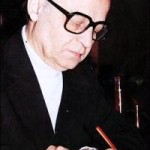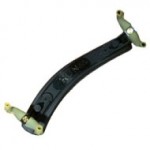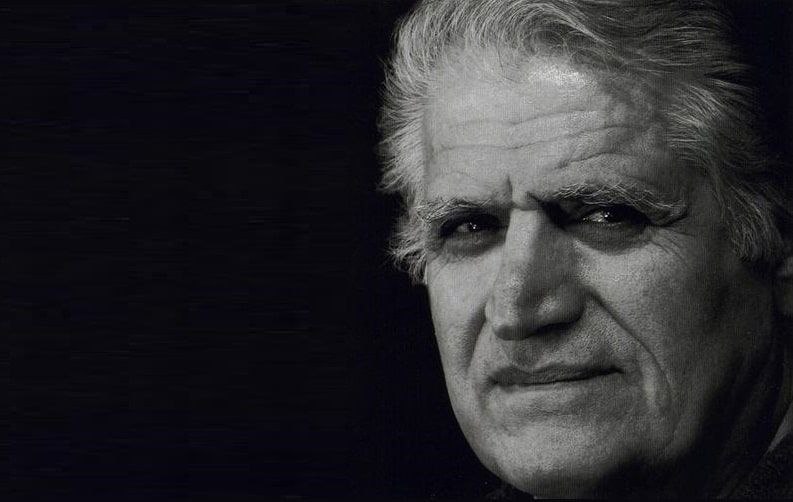Ashura Opera was composed by Behzad Abdi, the Iranian composer, in 2008 based on librettos compiled by Behrouz Gharib. The main source for the libretto is poems by Mohtasham Kashani, a sixteenth century Iranian poet.
Tag Archives: Soheyl Matin
Latest posts
- Transition to Enlightenment: Six Lectures on Mozart’s String Quartets (5)
- Nasser Masoudi: The Voice of Gilan and a Legacy of Iranian Music
- Farhad Poupel: The Voice of the Shahnameh in the Orchestras Around the World
- Five Major Myths About Mozart’s Life
- Bahma Rajabi Passed Away!
- Reza Vohdani; Unveiling unpublished works, preservation of Iranian classical music
- Ahmad Pejman Passed Away!
- Timeless or Timely: The Role of Historical Context in Defining Artistic Value
- Leading the Charge in Censorship
- The Legacy of Khosrow Jafarzadeh
- Transition to Enlightenment: Six Lectures on Mozart’s String Quartets (4)
- Fereydoun Shahbazian, An Iranian Musical Icon Passed Away
From Past Days…
Transition to Enlightenment: Six Lectures on Mozart’s String Quartets (1)
Transition to Enlightenment: Six Lectures on Mozart’s String Quartets* Basic Ideas and General Structure The Enlightenment, an epoch of intellectual fervor marked by reason, individualism, and cultural evolution, indelibly left its imprint on the arts. Mozart, a luminary of this transformative era, intricately wove these ideals into his compositions, particularly his string quartets. This article…
Read More

The Structure of Kurdistan Daf (II)
With its simple physical structure and captivating sound, the Daf never belonged to a particular culture or location, and every nation had different usages for this instrument considering their dominant customs and traditions.

Hossein Dehlavi: the Composer
With Dehlavi it is not all about fame but recognition. Hossein Dehlavi is not a popular musician (like pop singers) whom everybody might know when he is walking on streets of Tehran; however, he is recognized by both amateur and distinguished musicians of the country.

Parviz Meshkatian’s Heart Beat for People (II)
As such, the young Meshkatian reached the position of a great maestro in the Iranian music. Up until 1997, Meshkatian remained prolific and composed many pieces which were characterized by progressiveness while drawing on the music of the past Iranian musicians. In some of Meshkatian’s works, one can trace the influence of maestros such as Faramarz Payvar; however, this influence is so balanced that one can neither say that Meshkatian is a progressive and deconstructionist composer nor does he use cliché forms in his compositions.

Principles of Playing Violin (V)
3/1/2/5: When the first finger lands next to the nut, continuation of first phalange of this finger, on back of the hand, should be in line with continuation of the back of the wrist and the left hand; moreover, it should not pass them and bend at knuckles. Otherwise, an uncommon stretch is created in first finger’s knuckle also reducing the freedom of other fingers (especially the fourth finger) in finger placement.

Developments in Iranian Music Since Qajar Era (II)
Santour:
Nine-bridge and twelve-bridge Sanours were both used until the early Pahlavi dynasty. However, as Faramarz Payvar devised new methods for playing the nine-bridge Sanour, this variety of the instrument which was hammered by felted sticks became popular.

Principles of Violin Playing (I)
The present series of training articles, “Principles of Violin Playing”, seek to help students, to appropriately understand this field, by gradually introducing, categorizing, and teaching the myriad relevant points. One of the principles of playing violin, which must be always kept in mind, is that the selection of the most natural position for the body parts while playing is the best and most appropriate solution. As a matter of fact, any unnatural body part position which requires lots of energy or unusual stretching to maintain, is wrong.

Is the Iranian National Anthem a Copy? (II)
In response, it should be said that it is better for the national anthem of a country to use the musical material exclusive to that country; however, some problems might come up in doing so the most important of which include: lack of familiarity of other countries’ music performer with the concerned country’s specific music intervals and special musical technique; and secondly, the strangeness of that music to the foreign listener.

Ahmad Pejman Passed Away!
Composer and music teacher Ahmad Pejman (1935–2025) passed away on August 29 in Los Angeles, USA, after several weeks of illness. His most recent symphonic work performed in Iran was Land of the Brave (“Sarzameen-e Delavaran”), which was staged in 2017 with the Tehran Symphony Orchestra. According to the family’s decision, his body will be laid to rest in the United States.

Polyphony in Iranian Music (VI)
Torqeh or jal is the same bird (Bimaculated lark) and is the name of a muqam which is well-known in Torbate Jam and those areas. Jal muqam is called Torqeh in Esfarayen and Bojnourd. This muqam which was used to be played by Bakhshis/Bagşies (dutar-players) in the past is seldom performed today.